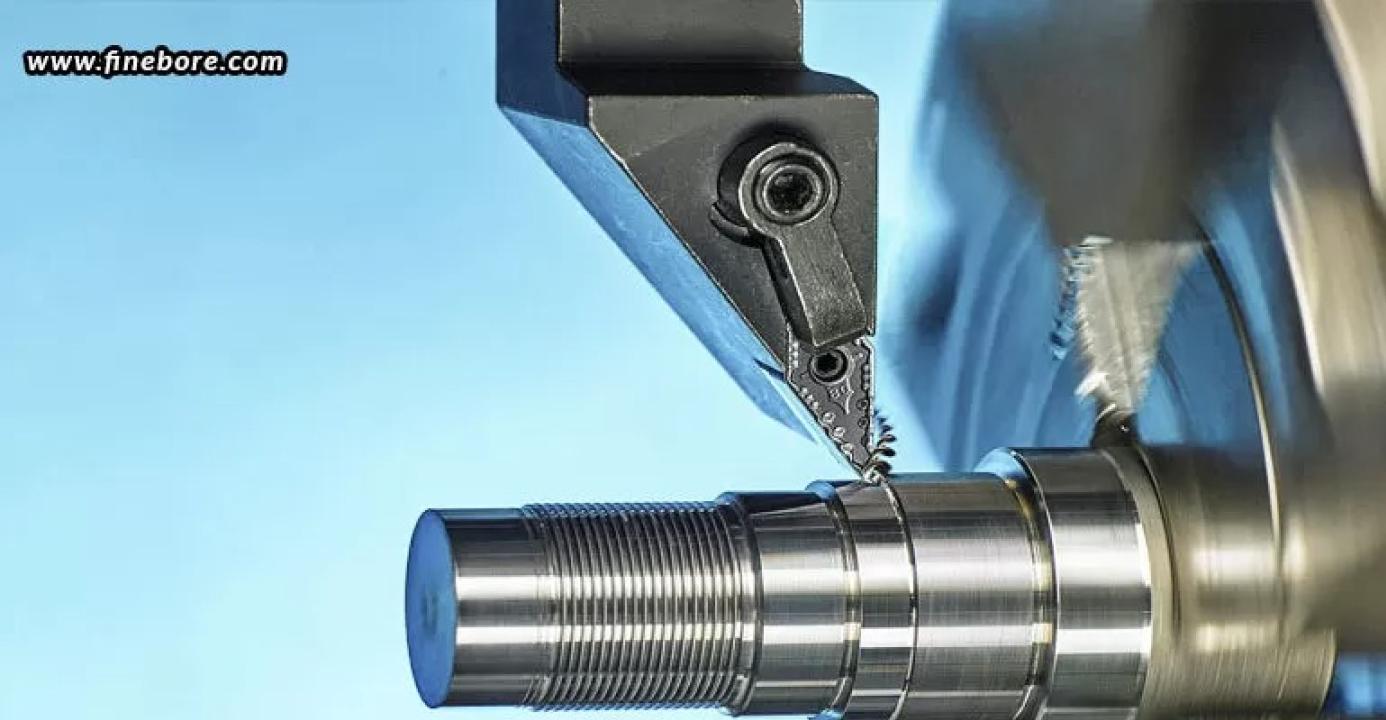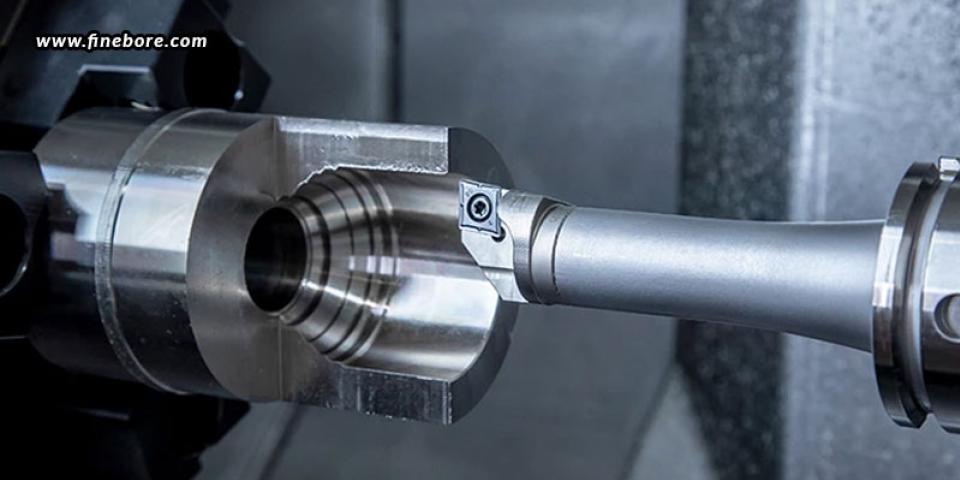Boring bars are a crucial component of precision machining and are used extensively in a variety of industries to consistently and accurately refine holes. Understanding dimensions and materials is only one aspect of choosing the best boring bar; other factors include material qualities, machining circumstances, and industry-specific requirements. Here’s a detailed look at the several industries that use boring bars, including the automotive, aerospace, and medical equipment production sectors, as well as the criteria that influence each industry’s choice of a boring bar.
High precision for small and soft materials in the electronics industry
Because it works with circuit boards, connectors, and casings, the electronics industry needs boring bars that can precisely handle small, fragile parts. Certain materials, including plastics and some alloys, are frequently softer and must be handled carefully to prevent damage.
Key requirements
Precision and small dimensions: In order to accommodate electrical components, boring bars in this business must precisely create minuscule holes.
Non-marring finish: Boring bars that won’t leave markings or harm the surface are necessary for softer materials like plastics and aluminium.
Fast speed for mass production: Because electronics manufacturing frequently involves large quantities, boring bars that can operate at fast speeds without sacrificing precision are required.
Recommended boring bars for electronics applications
Solid carbide micro boring bars are perfect for electronics applications because they allow for tiny, accurate holes in soft materials like alloys and plastics, guaranteeing accuracy in delicate components. Additionally, diamond-tipped boring bars are strongly advised since they offer exquisite finishes, especially for tiny electronic components that need to be extremely smooth and clean. Furthermore, polycrystalline diamond (PCD) boring bars are ideal for cutting non-ferrous materials because they provide remarkable precision and great wear resistance, which makes them ideal for the exacting requirements of the electronics manufacturing industry.
Speed and precision in the automotive industry
Boring bars are used extensively in the automotive industry to create parts with precise tolerances, especially for engine and gearbox systems. Speed and accuracy are crucial in this situation because even minute flaws might affect longevity, performance, and safety.
Key requirements
High precision: Crankcases, connecting rods, and engine cylinders are only some of the examples of automotive components that require high precision. To guarantee that these parts fit together perfectly, the boring bars used here must maintain incredibly tight tolerances.
High-speed machining: To satisfy the demands of large-scale production, automakers give top priority to high-speed machining. Boring bars must therefore endure high speeds without compromising durability or accuracy.
Wear resistance: Materials like carbide are favoured because of the repeated nature of automobile machining. Because of their resistance to deterioration, these materials minimize downtime for tool changes.
Recommended boring bars for automotive applications
Because of their exceptional durability and ability to hold their edge, carbide-tipped boring bars are perfect for the prolonged, high-speed application frequently found in the automotive industry. Vibration-dampening boring bars are also advised for deep engine bores; their long-reach design and vibration-dampening properties help lower the possibility of vibration-induced errors, guaranteeing accuracy in complex automotive components.
Strength and stability in the aerospace industry
Boring bars that can handle exotic, challenging-to-machine materials like titanium and Inconel are essential for aerospace components like turbine engines and landing gear. Deep, accurate bores that preserve structural integrity in harsh environments are frequently used in these parts.
Key requirements
Extended reach and stability: Boring bars must be able to reach deep bores and complex geometries in aerospace applications while being stable.
Vibration control: Controlling vibration is crucial because of the extreme lengths and rough materials. The quality and safety of parts might be jeopardized by variations caused by even small vibrations.
Material adaptability: Because high-hardness and heat-resistant materials are commonly used in aerospace parts, boring bars with specific coatings and high thermal tolerance are necessary.
Recommended boring bars for aerospace applications
Dampened boring bars with internal dampening mechanisms are crucial for aerospace applications because they reduce vibration during deep bores, improving surface finish and precision. Because of their great wear resistance and accuracy, polycrystalline diamond (PCD) boring bars are perfect for non-ferrous materials like aluminium used in aircraft bodies. Furthermore, carbide and cermet-coated boring bars are great options for cutting strong metals like Inconel and titanium because they have coatings that prevent the tools from deforming and endure high heat.
Extreme precision and reliability in the defense industry
Defense manufacturing, which frequently deals with intricate geometries and unusual materials, requires accuracy as well as dependability. Critical parts for weapons, airplanes, and automobiles where precision and material integrity are essential for functionality and safety are made with boring bars.
Key requirements
Strict surface finish and tolerances: To guarantee dependable operation in the field, parts used in defense applications require precise fits and finishes.
High durability: Because defense-related components are frequently exposed to high-stress conditions, boring bars need to be incredibly strong and resilient.
Flexibility with complex materials: Boring bars for exotic metals and alloys used in defense must be able to work with materials that are hard, abrasive, and frequently heat-resistant.
Recommended boring bars for defense applications
Ceramic-tipped boring bars are strongly advised for defense applications because they can handle exotic metals with strength and retain their edge for high-precision machining. Because they are made to endure the harsh circumstances frequently found in defense manufacture, high-performance carbide boring bars are also crucial, especially for cutting hardened metals. Furthermore, customized multi-purpose boring bars offer versatility by accommodating a range of depths and diameters, which makes them perfect for machining intricate defense components that call for accuracy and flexibility.
Precision in small parts of medical equipment manufacturing
Making tiny, complex pieces that require a very high level of precision is a common task in the medical manufacturing industry. Boring bars, which need incredibly tight tolerances and immaculate finishes, are used to make parts for surgical tools, implants, and medical equipment.
Key requirements
Micro-machining capabilities: Small-diameter boring bars are necessary for the tiny, precise bores needed in medical parts, especially implants and surgical equipment.
Biocompatibility: To prevent contamination, boring bars used on biocompatible materials such as titanium and stainless steel must have a clean finish.
Fine surface finishes: To avoid microbiological contamination and guarantee safe use within the human body, medical devices need to have clean, smooth surfaces.
Recommended boring bars for medical applications
High-speed steel (HSS) micro boring bars are perfect for small-diameter holes and delicate cuts in medical applications because they offer the precision required for micro-machining. Because their diamond coatings guarantee a flawless surface finish, diamond-coated boring bars are also frequently employed. This makes them ideal for high-precision cuts on materials like titanium and stainless steel. For cutting small, complex medical items, solid carbide boring bars provide the rigidity and endurance needed to ensure reliable performance in delicate applications.
Durability for hard and abrasive materials in the oil and gas industry
Large, heavy-duty parts composed of hard, abrasive materials like alloys and stainless steel are used in the oil and gas industry. Extreme conditions, such as high temperatures, pressures, and corrosive environments, must be tolerated by components in this industry.
Key requirements
Heavy-duty performance: In oil and gas applications, boring bars need to be strong enough to machine hard materials without needing to be replaced very often.
Resistance to heat and corrosion: Because of the extreme conditions, boring bars must be very resistant to both heat and corrosion, particularly for pipeline and subsea applications.
High torque and low vibration: Boring bars that can withstand high torque settings without vibrating are necessary for large, heavy items.
Recommended boring bars for oil and gas applications
Because of its combination of ceramic and metallic elements, which offer resistance to heat and corrosion—qualities perfect for deep boring—cermet-tipped boring bars are very useful in oil and gas applications. Large-diameter holes in hard materials can be bored with heavy-duty carbide boring bars because of their durability and resistance to wear. Furthermore, unique coatings like titanium carbide or titanium nitride provide boring bars with more durability, which makes them particularly helpful in abrasive conditions.
Choosing the right boring bar based on industry needs
Selecting the right boring bar is essential to maximizing machining performance. Careful consideration must be given to elements like material compatibility, tolerance specifications, machining conditions, and usage volume and frequency. To guarantee longevity and accuracy, the boring bar’s material and coating should match that of the workpiece. The choice of a specialized tool should also be guided by the particular requirements of machining, such as deep-bore, high-speed applications or reducing vibration. Purchasing application-specific boring bars helps lower tool changes, minimize downtime, and increase overall productivity in high-volume industries where durability and wear resistance are crucial. In order to satisfy these varied demands, FineTech Toolings provides a selection of premium boring bars in Bangalore that guarantee superior performance, accuracy, and dependability in a range of industrial applications, making them a reliable option for businesses looking for top-notch machining solutions, owing to their dedication to provide precision-engineered, customized tools.
Resource: Read more














